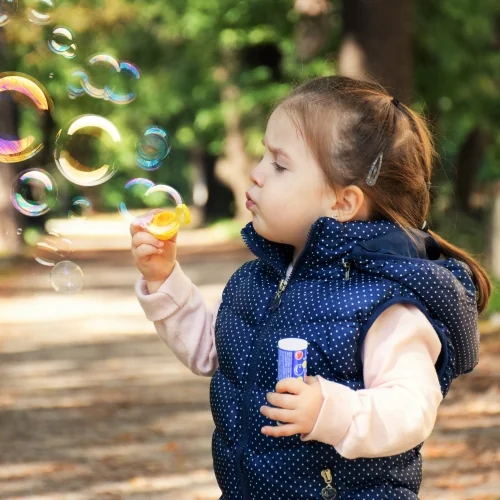Building Healthy Smiles and Habits for a Lifetime
Serving Burlington, Cold Spring, Florence, & Northern KY
Early dental care is all about securing a healthy smile for the future. It starts with protecting your child’s baby teeth, then helping them establish healthy habits that will last well beyond childhood. At Pediatric Dental Center in Burlington and Cold Spring, KY, Dr. Eric Soper and his team are dedicated to providing gentle dental care, teaching healthy habits, and giving kids positive early experiences so they will feel comfortable in the dental chair for years to come.
Have questions or ready to schedule? Our Burlington and Cold Spring pediatric dental teams are here to help you find the right time for your child’s visit. Give us a call at one of our 2 Northern KY locations today.
What do you need to know about your child’s teeth?
Children’s teeth begin forming before birth.
As early as four months, the first primary teeth may begin to erupt. These are usually the lower central incisors, followed closely by the upper central incisors. All children are unique in the eruption timing but tend to follow the same pattern of eruption.
You can expect to see around 20 baby teeth by the time your baby has finished teething.
Our kids’ dentist will take good care of these baby teeth to prepare the way for healthy adult teeth.
Visiting your kid’s dentist will set your child up for smile success.
We can address all of your questions and help your child develop the habits they need to maintain healthy teeth.
Taking Care of Your Child’s Baby Teeth
Baby teeth play an important role in dental development, so it is important to take good care of them. Help your child:
- Form good brushing habits, brushing twice daily for two minutes each time. This should happen as soon as your child has teeth! Gentle flossing should also begin as soon as your child has two teeth that touch.
- Eat a healthy diet, avoiding too much sugar.
- Schedule an appointment with your kid’s dentist by their first birthday.
“Wonderful staff! So sweet and nice to my baby who didn’t sit still the best! The hygienist was so nice and made it fun for Noah!”
– Jennifer J.
Early Dental Care FAQs
Why Choose Pediatric Dental Center
Convenience
Pediatric Dental Center has multiple locations for your convenience. At any location, you will discover a wide range of services to suit all of your child’s needs. We are your trusted one-stop shop for dentistry! Whatever treatment is needed, you can rest assured that your child will be treated with respect and care.
Quality
Our pediatric dentists are both experienced and board-certified. They have specialized training so that they understand your child’s needs for comfort and deliver optimal results for your child. Our practice is completely mercury-free. We only do composite fillings and stainless steel crowns. Our materials lend themselves to better results while keeping your child safe.
Fun
We pride ourselves on our fun environment! Kids like coming into our office. There are things for them to look at and activities to do. They have entertainment options and various amenities to keep them comfortable and distracted from any anxiety. We believe in education, and we know how to make it fun. We speak in simple terms to encourage your child to brush and floss correctly at home.
Expert Dental Care for Your Young Ones
If you are looking for a children’s dentist near you, you have come to the right place. Here at Pediatric Dental Center, we have office locations in Burlington and Cold Spring Kentucky. We also proudly provide dentistry for children to patients from all over the Northern Kentucky area, including the communities of Florence, Hebron, Covington, Erlanger,Independence, and Ft. Thomas, KY as well as Lawrenceburg, IN.
Children need specialized dental care to ensure a strong foundation of great oral health. You need a children’s center with a fun environment and compassionate service. To schedule an appointment with our kids’ dentist, call Pediatric Dental Center today.






